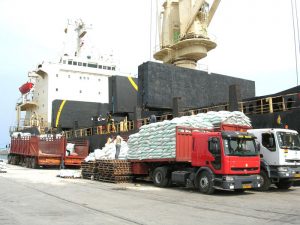Ghana approved a green-minerals policy to help manage the exploitation and production of lithium, a step toward tapping into the multibillion-dollar global industry.
The cabinet approved the policy document July 27, Lands and Natural Resources Minister Samuel Jinapor said in an interview. It’s expected to be passed by parliament before the end of the year, and will provide clear guidelines and a fiscal regime for mining so-called green minerals in a manner that ensures Ghana derives as much benefit as possible from its resources.
“Ghana is seeking to operate at a level that makes the best out of the resource as much as practical,” Jinapor said Aug. 3 in the capital, Accra. “Ghana’s Green Minerals Policy as approved by cabinet demands that not a single volume of lithium produced in this country will be allowed to be exported in its raw state.”
Resource nationalism is strengthening across the world as developing countries seek a greater share of the profits from soaring commodity prices, while addressing historic inequities in the wealth flows from mining. In Chile — the No. 2 lithium producer — President Gabriel Boric is looking for a bigger share of the mining windfall to fund schools and hospitals. Mexican President Andrés Manuel López Obrador declared lithium too strategic for private investors.
Ghana is Africa’s biggest gold producer and has deposits of other so-called green minerals including manganese, graphite and cobalt, Jinapor said.
The development of the lithium industry in Ghana comes as Western governments race to secure supplies of critical minerals needed for the transition to clean energy.
“Now we have a national policy on exploitation, management and regulation of the Ghana’s green minerals, there may be some tweaks to improve the policy as parliament works to approve and inculcate it into the nation’s mining policy document,” the minister said.
Companies including Australia-based Atlantic Lithium Ltd. are exploring for lithium in Ghana, though the firm has yet to apply for a mining lease, Jinapor said.
“Government will engage with them when they come,” he said.






